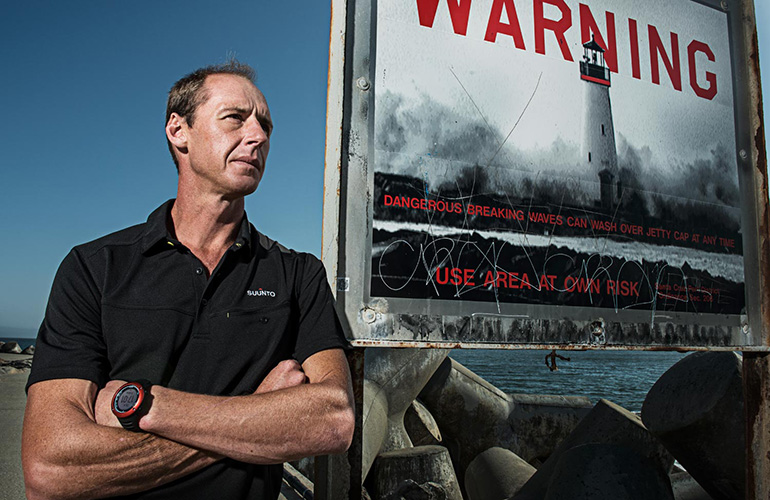As you might expect from someone with the nickname of ‘caveman’, Conrad Stoltz is not into fads when it comes to recovery. Not for him ice baths and compression socks. He prefers to do what’s proven. Train right, eat right and rest properly.
So why don’t you like ice baths?
I've reverted back to old school! I used to do the ice bath thing or jumping in a cold river after training. But getting in a freezing river after training is not worth it to me! Science hasn't really proven that ice baths help.
What about compression? There is a lot of evidence there...?
I've done the compression socks thing but they don’t fit well and there's no real definite proof that compression socks make a big enough difference.

Warning: don't refuel properly and you'll never recover. ©zooom.at/Markus Berger
So what do you do?
The things that are proven to make a difference – fueling and rehydrating properly. Within the first half an hour of training you need to have so many grams of carbs and so much protein to start the recovery. [Advice varies but many sports nutrionists recommend following the for 3:1 carbs to protein ratio.]
From pancakes to paragliding. See how the rest of Suunto's athletes recover.
Anything else?
Massage is key. It’s not only for recovery, but also injury prevention. It’s crucial. The other big thing many athletes overlook is that they need to leave enough time between workouts to be able to complete those workouts at the required intensity.

Take your off-season seriously and do other activities, like go fishing. ©Conrad Stoltz
You mean rest?
A lot of athletes just want to log as many hours as possible in the logbook and then tally the hours to feel like they did a good job. For me and my coach, what's more important is that when I do the big quality workouts, I hit the numbers. Did I do the right amount of watts? And to be able to do that you need to be able to get to the session fresh, which means the day or two or three before you need to train very little so when the big session comes you can go hard. Recovery between key sessions is important.
What’s the key to your long career?
It's the fact I'm able to keep it fresh by having hobbies and activities. If I had to ride on the road every single time like the Ironman guys do I would never be able to make it! Stay mentally fresh by changing the environment where you are. Mental freshness is key.

Conrad Stoltz has been an elite pro athlete for over 20 years. He must be doing something right. ©Nils Nilsen
What about off season?
It's key. Don't think about triathlon, you're not going to lose all your fitness. Go surfing, go jogging, or go hiking or even ride a motorbike, just keep active! By the time you start training again you're eager to train because you really want to do it not because you feel you have to. When you wake up in the morning and you're not looking forward to training it's one of the first pointers towards over-training.
So training should be fun?
Training is not always fun. Sometimes you have to hurt yourself. But in terms of the big picture, it needs to be enjoyable, rather than seeing how much you can punish yourself.
Take your recovery more seriously and improve your performance. Find out how the Suunto Ambit3 can help.
Main image: ©zooom.at/Markus Berger